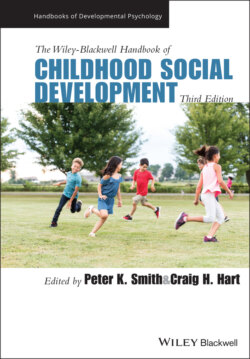Читать книгу The Wiley-Blackwell Handbook of Childhood Social Development - Группа авторов - Страница 33
Impoverished rearing conditions
ОглавлениеEarly studies of infants raised in orphanages implied that impoverished environments, particularly institutionalization and inconsistent caretaking, adversely impacted children’s social development. Subsequent research clarified the nature of institutionalized children’s social deficits and uncovered underlying causes or contributing factors. For example, findings showed that institutionally reared children tended to develop emotional and behavior problems, exhibit indiscriminate friendliness, and form poor‐quality friendships (Roy et al., 2004). These deficits were attributed to neurodevelopmental problems, which often were expressed as attentional deficits and over‐active behavior (Rutter et al., 2001). Additional evidence, comparing institutionalized children with their adopted or home‐reared counterparts, suggested that impoverished rearing conditions anteceded a variety of social difficulties (Maclean, 2003), including behavior problems, peer difficulties, and attachment disorders.
Also studied were the effects of adoption or foster‐care placement on the social development of formerly institutionalized children. Results from these studies, most of which were conducted with children reared in Romanian orphanages, constituted the one bright spot in an otherwise bleak body of findings. In general, these data indicated that removing children from deprived rearing environments and placing them in better‐quality care (e.g., via adoption, foster placement) lessened the likelihood that they would develop social impairments. The best outcomes were achieved when children’s exposure to deprivation was brief rather than prolonged (i.e., adoption before six months of age; Fox et al., 2013; Kennedy et al., 2016).
